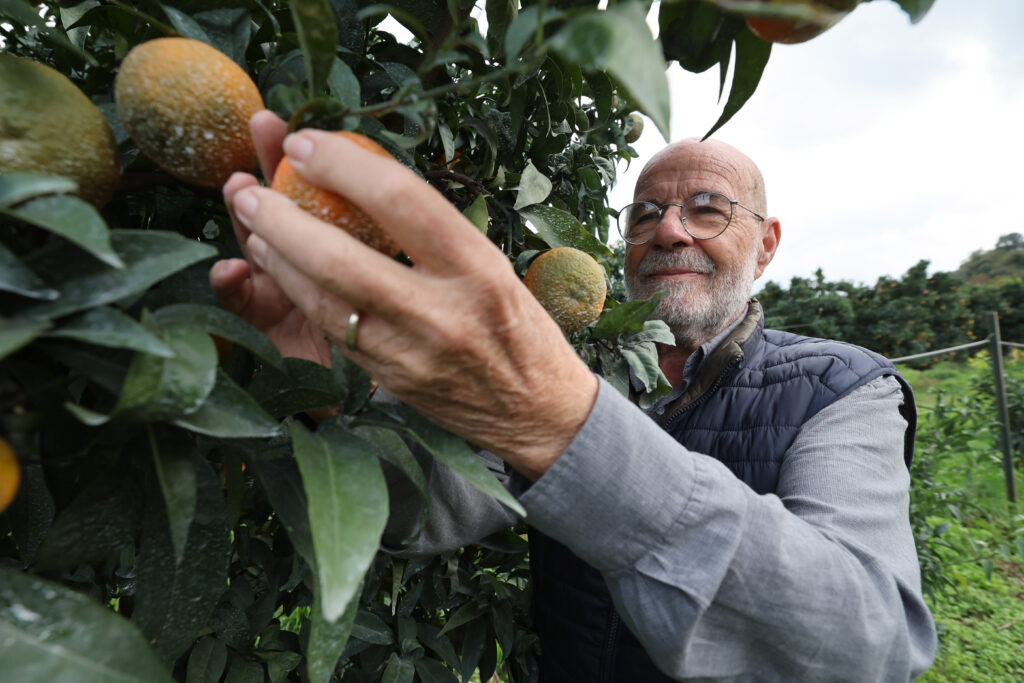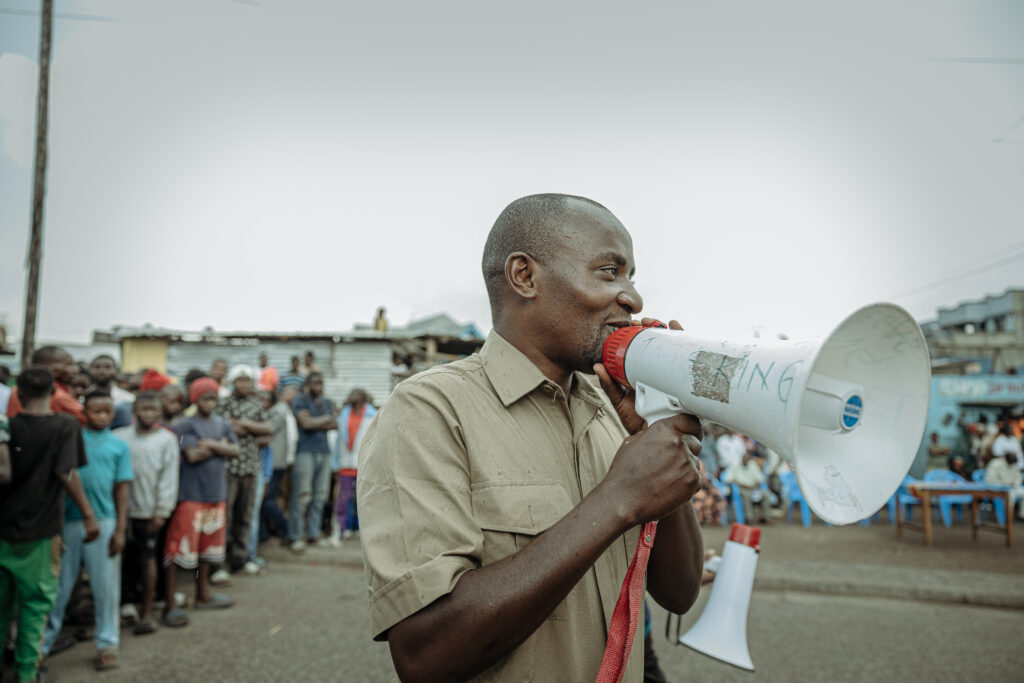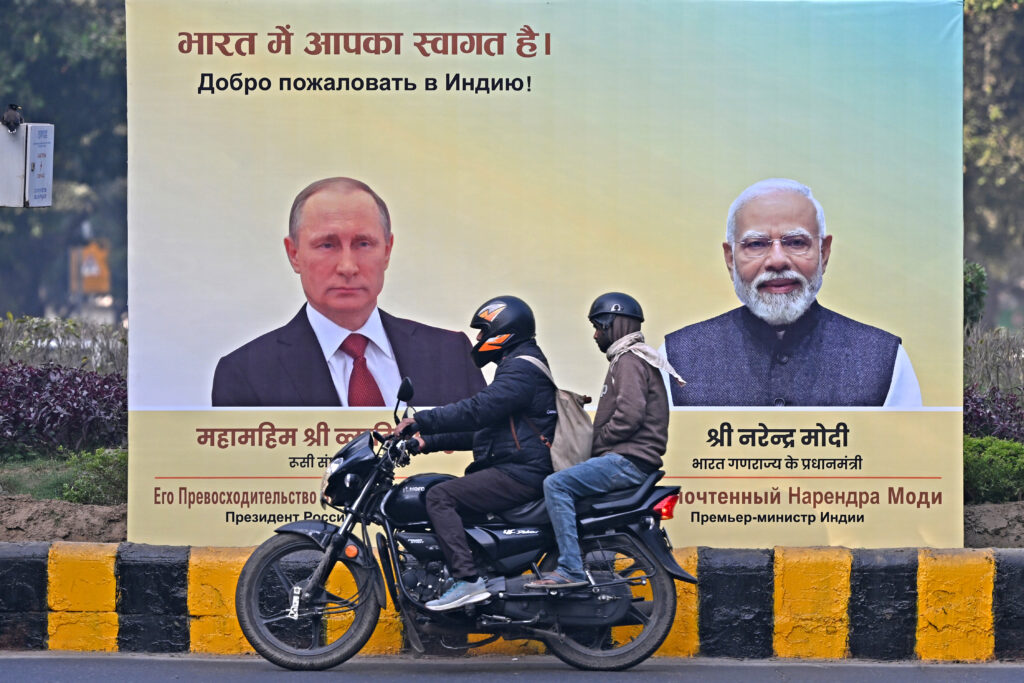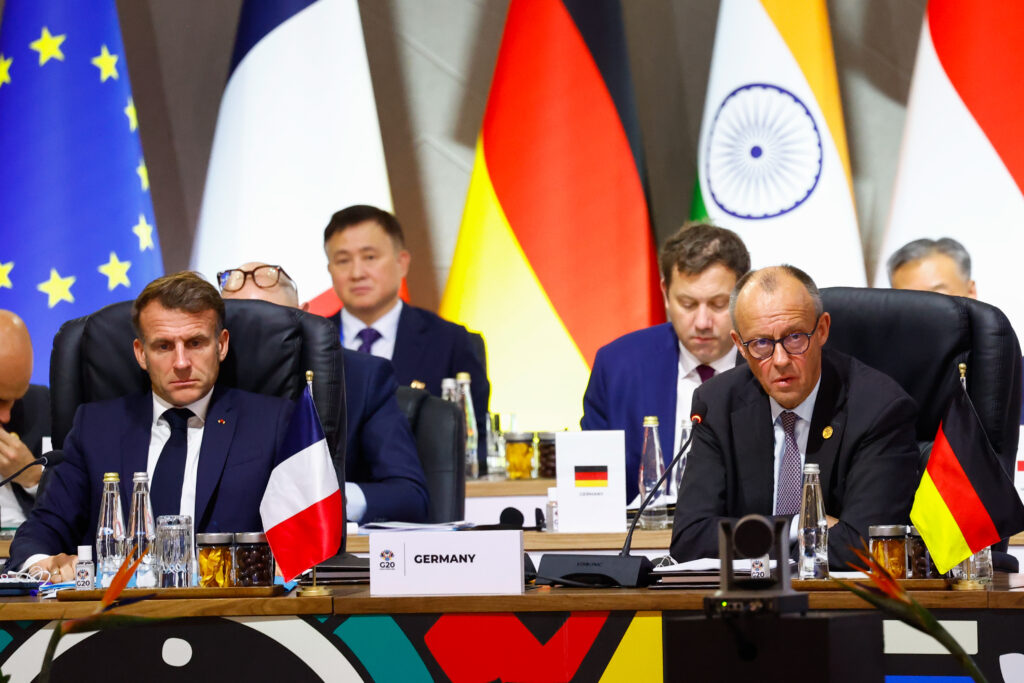La clémentine corse, Petit Poucet centenaire qui parie sur la qualité
Elle est sucrée, finement acidulée et vendue “le cul vert” avec ses feuilles: la clémentine corse, qui fête ses 100 ans, est un Petit Poucet face au géant espagnol mais a su trouver sa niche haut de gamme sur le marché français.Issue d’une hybridation mandarine-orange douce en Algérie au début du XXe siècle par le frère Clément, un religieux français qui lui a donné son nom, la clémentine “a été plantée en Corse en 1925”, explique à l’AFP Jean-Paul Mancel, président de l’Association pour la promotion et la défense de la clémentine de Corse (Aprodec), sur son exploitation de Santa-Lucia-di-Moriani (Haute-Corse).Depuis 2007, la quasi-unique clémentine française (quelques tonnes sont produites dans les Alpes-maritimes) se distingue par son indication géographique protégée (IGP), qui garantit le respect d’un cahier des charges très strict: taux de sucre, niveau d’acidité, calibre (46 à 68 mm), couleur naturelle “sans activateur de coloration” avec jusqu’à 1/5e de peau verte, absence de pépin et teneur en jus de 42 % minimum.Ce label de qualité est essentiel pour sa promotion, car si la clémentine corse pèse 90 millions d’euros, selon M. Mancel, avec 48.600 tonnes récoltées en 2024 dont 36.000 vendues sous IGP, elle fait figure de poids plume face aux géants du secteur. Numéro 1 mondial, la Chine a produit 25 millions de tonnes en 2021, devant l’Espagne (2 millions), la Turquie (1,8 million) et le Maroc (1,2 million), selon les chiffres de la FAO, l’organisation des Nations unies pour l’alimentation et l’agriculture.Producteurs et autorités insistent donc sur le fait que les clémentines corses, à la différence des importées, “ne subissent aucun traitement après avoir été cueillies à la main et à maturité”, les feuilles vertes “faisant preuve de sa fraîcheur”, comme le souligne le ministère de l’Agriculture.Quatre-vingt-dix à 95% de la production est expédiée par voie maritime vers les étals de France continentale dans un “délai maximal de 24 heures”, insiste l’Aprodec, qui réunit 205 producteurs insulaires et pèse 2.000 emplois dont 1.000 saisonniers marocains, spécialistes de la coupe.- “Le nouveau produit à la mode” -Toutes choses qui ont un prix: la clémentine corse se vend près du double que ses concurrentes espagnoles ou marocaines: en supermarchés sur l’île, l’espagnole s’achetait lundi 2,80 euros le kilo contre 5,20 euros pour l’insulaire.L’agrume corse ne représente d’ailleurs qu’une petite fraction des clémentines consommées en France, qui en importe 200.000 tonnes par an, principalement d’Espagne et du Maroc.Pour rentabiliser au mieux la filière, notamment les fruits non admis dans l’IGP (quelque 12.000 tonnes en 2024), deux unités de transformation ont été créées dans l’île dont l’atelier Corse Fruits et Légumes, en 2018 à Linguizzetta (Haute-Corse). L’an dernier, quelque “3.000 tonnes de clémentines” y ont été transformées, principalement en “jus, huile essentielle” ou base pour glaces ou boissons, explique à l’AFP Caroline Albertini, ingénieure production de l’usine.Autre débouché, la gastronomie. Au restaurant “Rosette et Charlot” d’Ajaccio, le chef Romain Rotondi voit l’agrume “un peu comme le nouveau produit à la mode”, qui peut “s’utiliser sous toutes ses formes, en sauce, en dessert, sur un plat, sur un canard”.Au Carl’s, à Ajaccio, le chef argentin Sebastian Burgos mise également sur elle pour réinventer le cheesecake, remplaçant le speculoos par le canistrelli associé à une crème de clémentine, “plus léger et plus local”. Pour l’heure, la récolte du centenaire qui vient de commencer s’annonce “très moyenne”, “sous les 30.000 tonnes” à cause de “l’excès de pluie pendant la floraison”, anticipe M. Mancel. Mais en tendance, depuis 2019, la production insulaire a presque doublé et la surface plantée est aujourd’hui de 1.700 hectares, selon le service de la statistique de l’agriculture (Agreste).A l’inverse, l’Espagne, touchée par des “épisodes de chaleur (..) qui ont freiné le développement des fruits”, accuse une baisse de production “pour la cinquième année” de suite et un niveau “au plus bas depuis au moins une décennie”, relève l’observatoire des marchés FruiTrop.




